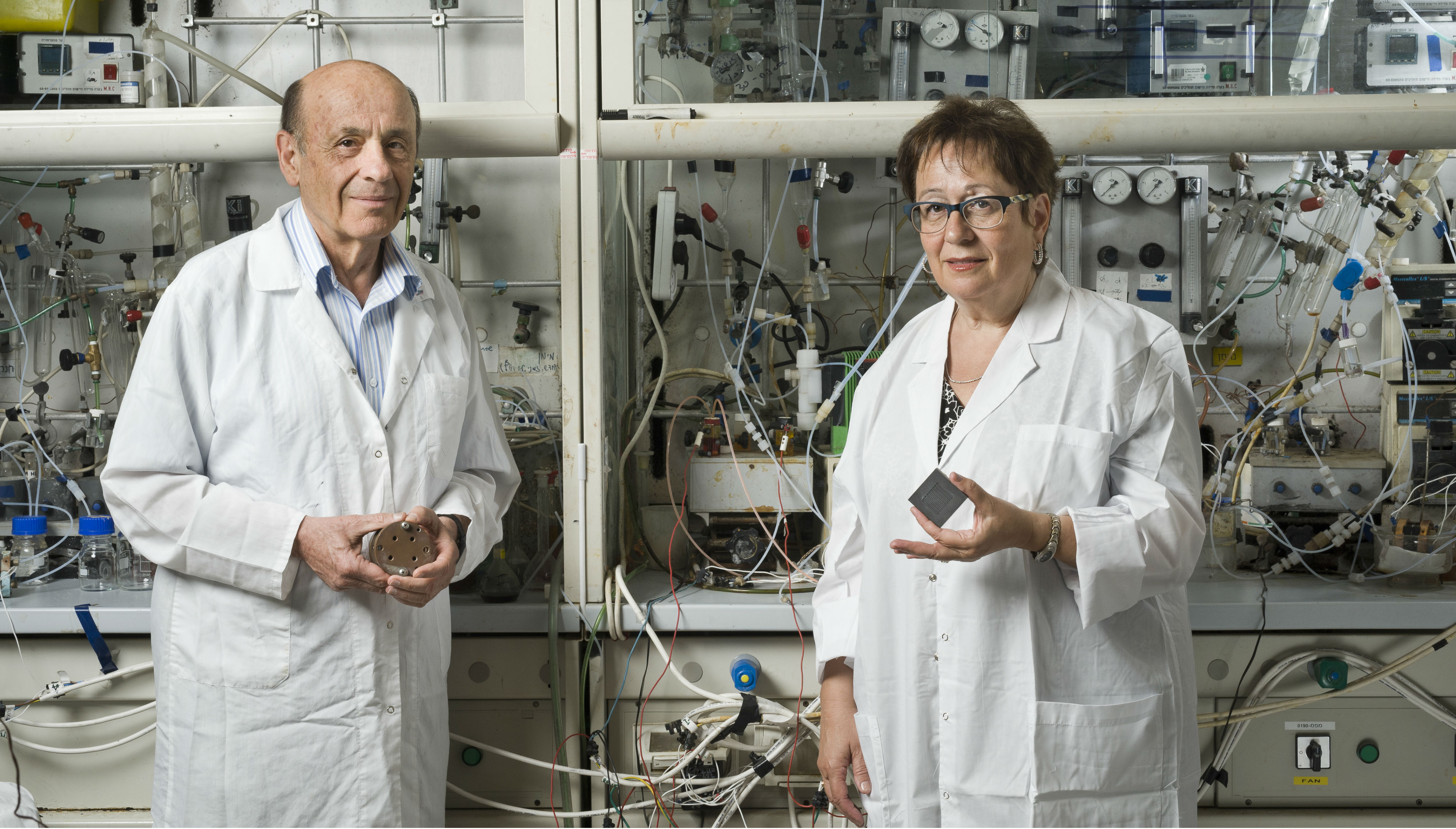Driving Change for an Independent Future
Today’s electric cars remain commercially unviable – savings in gasoline notwithstanding – with the costliest component being the battery. Besides being expensive, batteries are still too large, too heavy and too weak. But that could be changing, with scientists like Tel Aviv University's Prof. Emanual Peled and Prof. Diana Golodnitsky, of TAU's Center for Renewable Energy, propelling the industry forward. In the coming years, the car you drive could be powered solely by electrochemistry.
Professors Peled and Golodnitsky, of the Raymond and Beverly Sackler School of Chemistry, are pioneering technologies for cost-efficient production and storage of energy for electric vehicles. Their goal is to meet the industry benchmark of powering a vehicle for 500 kilometers (310 miles) on a single charge. Their prominence in the field recently won them a management role in the new Israel National Research Center for Electrochemical Propulsion (INREP), set up by the Prime Minister's Office and the Israel Science Foundation.
The government's motive in supporting the initiative is strategic. Dependence on foreign oil is an Achilles’ heel for Israel, as it is for many nations. Achieving independence from oil holds the potential to shift power structures worldwide. With this ambitious goal in mind, in 2011 the government convened a scientific advisory board to vet research directions. Fuel cells and batteries – the core of electrochemical propulsion – won out as a promising research direction, one that is particularly suited to Israel’s strengths and expertise.
“With a strong chemical industry already in place, Israel possesses the potential to be the inventor and the producer of materials and components needed for powering electric cars,” predicts Prof. Peled, an internationally-recognized innovator with 40 patents in fuel cell and battery research.
Pioneering fuel cell and battery technology
Peled and Golodnitsky are stepping up to the national task. Partnering with groups from three other Israeli universities, they will build on their laboratory findings in lithium-air and advanced lithium-ion batteries as the jumping-off-point for research and development at INREP.
In a separate line of research, supported by a California consortium of donors and the United States-Israel Binational Science Foundation (BSF), they are developing a novel type of sodium-air battery that he invented. This type of battery compares positively with lithium-air batteries for powering next-generation electric cars. Both sodium-based and lithium-based cells are expected to deliver a range of 500 kilometers per charge, tripling today’s range, but sodium cells will only cost half the price. And, because sodium has greater resistance to more materials, the casings and electrodes of sodium-air batteries can be made more cheaply, further lowering the price.

Pictured: Professors Emanuel Peled and Diana Golodnitsky of TAU's Center for Renewable Energy
Peled and Golodnitsky's fuel cell and battery research is also generating interest from other industry and governmental groups. For example, a European Union partnership of universities and industry, including Volkswagen, is supporting their advanced nanotechnology-based investigation into the development of silicon-alloy anodes for lithium air battery systems.
Bringing in fresh energy
Funding from INREP and matching sources is being used by Tel Aviv University to further another national goal – stemming brain drain out of Israel and bringing back oustanding young faculty from leading centers abroad. The University has already recruited one young scientist, Dr. Amir Natan, who joined the Iby and Aladar Fleischman Faculty of Engineering after post-doctoral work at Northwestern University, USA. Now TAU is searching vigorously for an additional recruit working at the forefront of battery and fuel cell research.
Dr. Natan will be applying his expertise in theoretical modeling to the INREP project, while his colleague Prof. Yosi Shacham, Vice Dean of Engineering, will contribute to the team in the area of material science.
About TAU's Center for Renewable Energy:
Prof. Emanual Peled and Prof. Diana Golodnitsky’s fuel & battery research group is one of 55 sustainable energy research groups affiliated with TAU’s Center for Renewable Energy. Over 300 scientists and graduate students across the campus study topics such as energy storage, solar-thermal energy, wind turbines, smart electricity grids and biofuel production. In the past five years alone, this research has produced 170 patents and about 1,000 publications in international journals. The innovative technologies developed in TAU laboratories have enormous economic potential: in an expanding global market of renewable energy, their value could reach billions of dollars.






